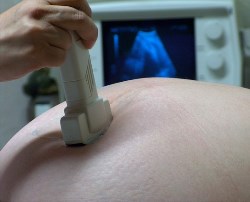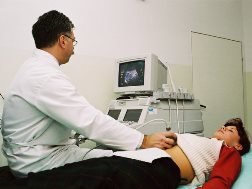How to Pick the Right Sonogram Technician School near Royal Arkansas
 Now that you have decided to obtain an ultrasound technician degree near Royal AR, it’s time to start the procedure of picking a school. To begin with, you must find the right program that will provide the necessary instruction to become a skilled professional. And because some states do mandate that sonographers be either certified or licensed, depending on where you will practice you may also need preparation to pass a certification or licensing examination. So it’s extremely important that you research each school so that you can assess and compare your alternatives. But exactly where does one start? A number of individuals will begin by searching for colleges that are within travelling distance of their residences and then by comparing tuition. Certainly cost and location should be considered when making a decision, but there are other significant factors as well. For example, if the ultrasound technician schools have earned accreditation or if they offer internship programs. These and additional qualifications will be addressed more in depth later in this post. But to start with, let’s discuss what an ultrasound tech does and the degrees and online training programs that are offered.
Now that you have decided to obtain an ultrasound technician degree near Royal AR, it’s time to start the procedure of picking a school. To begin with, you must find the right program that will provide the necessary instruction to become a skilled professional. And because some states do mandate that sonographers be either certified or licensed, depending on where you will practice you may also need preparation to pass a certification or licensing examination. So it’s extremely important that you research each school so that you can assess and compare your alternatives. But exactly where does one start? A number of individuals will begin by searching for colleges that are within travelling distance of their residences and then by comparing tuition. Certainly cost and location should be considered when making a decision, but there are other significant factors as well. For example, if the ultrasound technician schools have earned accreditation or if they offer internship programs. These and additional qualifications will be addressed more in depth later in this post. But to start with, let’s discuss what an ultrasound tech does and the degrees and online training programs that are offered.
Click Here to Get Free Information on Ultrasound Technician Schools!
Sonographer Work Summary
 There are various professional titles for ultrasound techs (technicians). They are also referred to as ultrasound technologists, sonogram techs, and diagnostic medical sonographers (or just sonographers). Regardless of name, they all have the same primary job function, which is to perform diagnostic ultrasound techniques on patients. Although many practice as generalists there are specialties within the profession, for instance in pediatrics and cardiology. The majority work in Royal AR clinics, hospitals, outpatient diagnostic imaging centers and even private practices. Common daily work functions of a sonogram technician can include:
There are various professional titles for ultrasound techs (technicians). They are also referred to as ultrasound technologists, sonogram techs, and diagnostic medical sonographers (or just sonographers). Regardless of name, they all have the same primary job function, which is to perform diagnostic ultrasound techniques on patients. Although many practice as generalists there are specialties within the profession, for instance in pediatrics and cardiology. The majority work in Royal AR clinics, hospitals, outpatient diagnostic imaging centers and even private practices. Common daily work functions of a sonogram technician can include:
- Keeping records of patient medical histories and details of each procedure
- Counseling patients by explaining the procedures and answering questions
- Readying the ultrasound machines for use and then sterilizing and recalibrating them
- Escorting patients to treatment rooms and ensuring their comfort
- Operating equipment while minimizing patient exposure to sound waves
- Reviewing the results and identifying need for additional testing
Sonographers must regularly evaluate the safety and performance of their machines. They also must adhere to a high professional standard and code of conduct as health practitioners. So as to sustain that level of professionalism and stay up to date with medical knowledge, they are mandated to enroll in continuing education programs on an ongoing basis.
Sonogram Technician Degree Programs Offered
 Ultrasound tech enrollees have the option to acquire either an Associate or a Bachelor’s Degree. An Associate Degree will usually take around 18 months to 2 years to finish depending on the program and class load. A Bachelor’s Degree will require more time at up to 4 years to finish. Another option for individuals who have already obtained a college degree is a post graduate certificate program. If you have earned a Bachelor’s Degree in any major or an Associate Degree in a related health field, you can instead choose a certificate program that will take only 12 to 18 months to finish. One thing to bear in mind is that the majority of sonographer schools do have a practical training element as a portion of their course of study. It can often be fulfilled by entering into an internship program which numerous schools organize with Royal AR hospitals and clinics. After you have graduated from one of the degree or certificate programs, you will then have to fulfill the licensing or certification prerequisites in Arkansas or whichever state you elect to practice in.
Ultrasound tech enrollees have the option to acquire either an Associate or a Bachelor’s Degree. An Associate Degree will usually take around 18 months to 2 years to finish depending on the program and class load. A Bachelor’s Degree will require more time at up to 4 years to finish. Another option for individuals who have already obtained a college degree is a post graduate certificate program. If you have earned a Bachelor’s Degree in any major or an Associate Degree in a related health field, you can instead choose a certificate program that will take only 12 to 18 months to finish. One thing to bear in mind is that the majority of sonographer schools do have a practical training element as a portion of their course of study. It can often be fulfilled by entering into an internship program which numerous schools organize with Royal AR hospitals and clinics. After you have graduated from one of the degree or certificate programs, you will then have to fulfill the licensing or certification prerequisites in Arkansas or whichever state you elect to practice in.
Ultrasound Tech Online Classes
 As earlier discussed, almost all ultrasound tech colleges have a practical requirement to their programs. So although you can receive a certificate or degree online, a significant part of the training will be either conducted in an on campus laboratory or at an authorized off-campus facility. Practical training can typically be fulfilled by means of an internship at a local Royal AR outpatient clinic, hospital or family practice. However the remainder of the training and classes can be accessed online in your Royal home. This is particularly beneficial for those individuals that continue working while getting their degrees. In addition online schools are frequently more affordable than on-campus alternatives. Costs for commuting and study materials can be decreased also. But similarly as with any sonographer program you are reviewing, check that the online school you ultimately pick is accredited. One of the most highly regarded accrediting organizations is the Commission on Accreditation of Allied Health Education Programs (CAAHEP). Accreditation is especially significant for certification, licensing and finding employment (more on accreditation later). So if you are motivated enough to learn away from the classroom in the comfort of your own home, then an online school could be the right option for you.
As earlier discussed, almost all ultrasound tech colleges have a practical requirement to their programs. So although you can receive a certificate or degree online, a significant part of the training will be either conducted in an on campus laboratory or at an authorized off-campus facility. Practical training can typically be fulfilled by means of an internship at a local Royal AR outpatient clinic, hospital or family practice. However the remainder of the training and classes can be accessed online in your Royal home. This is particularly beneficial for those individuals that continue working while getting their degrees. In addition online schools are frequently more affordable than on-campus alternatives. Costs for commuting and study materials can be decreased also. But similarly as with any sonographer program you are reviewing, check that the online school you ultimately pick is accredited. One of the most highly regarded accrediting organizations is the Commission on Accreditation of Allied Health Education Programs (CAAHEP). Accreditation is especially significant for certification, licensing and finding employment (more on accreditation later). So if you are motivated enough to learn away from the classroom in the comfort of your own home, then an online school could be the right option for you.
What to Ask Sonogram Tech Programs
 As soon as you have determined the type of degree or certificate that you would like to obtain, you can initiate the process of assessing and comparing ultrasound tech schools. You will first probably want to decide whether you would rather attend classes online or travel to a school campus in the Royal AR area. Of course location will be important if you choose the latter, and the price of tuition undoubtedly will be an important qualification also. But there are additional things that you must also take into account, such as if the schools are accredited and if they sponsor internships. Therefore in order to perform your due diligence so that you can make your ultimate selection, following are a few questions that you may want to ask each sonography college before deciding.
As soon as you have determined the type of degree or certificate that you would like to obtain, you can initiate the process of assessing and comparing ultrasound tech schools. You will first probably want to decide whether you would rather attend classes online or travel to a school campus in the Royal AR area. Of course location will be important if you choose the latter, and the price of tuition undoubtedly will be an important qualification also. But there are additional things that you must also take into account, such as if the schools are accredited and if they sponsor internships. Therefore in order to perform your due diligence so that you can make your ultimate selection, following are a few questions that you may want to ask each sonography college before deciding.
Are the Sonogram Tech Programs Accredited? A large number of ultrasound technician colleges have earned some type of accreditation, whether regional or national. However, it’s still crucial to confirm that the school and program are accredited. Among the most highly regarded accrediting organizations in the field of sonography is the Joint Review Committee on Education in Diagnostic Medical Sonography (JRC-DMS). Schools earning accreditation from the JRC-DMS have undergone a detailed review of their instructors and course materials. If the program is online it can also earn accreditation from the Distance Education and Training Council, which focuses on online or distance education. All accrediting organizations should be acknowledged by the U.S. Department of Education or the Council on Higher Education Accreditation. Along with ensuring a premium education, accreditation will also assist in acquiring financial aid and student loans, which are often not offered for non-accredited schools. Accreditation might also be a pre-requisite for licensing and certification as required. And a number of Royal AR health facilities will only hire graduates of an accredited school for entry-level openings.
Are Internships Sponsored? Inquire if the ultrasound technician programs you are interested in have relationships with Royal AR hospitals or clinics for internship programs. Not only are internships an excellent manner to get practical training in a clinical environment, they are additionally a means to satisfy the practical training requirement for most programs. As a supplemental benefit, they can help graduates and students develop professional relationships in the Royal medical community and assist with obtaining employment.
Is Job Placement Help provided? You will probably wish to hit the ground running after graduating, but finding that first job in a new profession can be difficult without help. Ask if the ultrasound tech schools you are interviewing have job placement programs and what their success rates are. High and rapid placement rates are an excellent indication that the schools have large networks and great relationships with Arkansas healthcare employers. It also confirms that their students are well regarded and in demand.
Where is the School Located? For a number of students, the college they decide on will have to be within driving distance of their Royal AR residence. Those who have decided to attend classes online obviously will not have to worry themselves with the location of the campus. However, the availability of area internships will be of concern. One thing to consider is that if you choose to enroll in a program that is out of state or perhaps out of your local area, you may be required to pay a higher tuition. State colleges commonly charge higher tuitions for out of state residents. And community colleges often charge a higher tuition to those students that don’t reside within their districts.
How Big are the Classes ? Unless you are the kind of person that likes to sit way in the back of the classroom or hide in the crowd, you will likely prefer a small class size. Small classes permit more individual participation and one-on-one instruction. Ask the schools you are considering what the average teacher to student ratio is for their classrooms. If practical you may prefer to sit in on one or more classes before making your ultimate decision. This will also give you a chance to speak with a few of the students and instructors to get their opinions regarding the ultrasound technician program as well.
Does the Program Accommodate your Schedule? And finally you must verify that the sonographer program you finally choose can offer the class schedule you need. This is particularly essential if you opt to continue working while attending school. If you need to schedule evening or weekend classes in the Royal AR area, check that they are available. If you can only attend part-time, verify if that is an alternative and how many courses or credit hours you would need to carry. Also, learn what the procedure is for making up any classes that you might miss due to illness, work or family obligations.
Ultrasound Tech Certificate Programs Royal Arkansas
 Selecting the ideal sonographer certificate or degree program is an important first step to commencing a fulfilling new career providing diagnostic services to patients. Ultrasound tech programs require that you have earned a high school diploma or equivalent. In addition to satisfying academic requirements, you need to be in at least fairly good physical condition, capable of standing for extended periods and able to routinely lift weights of 50 pounds or more, as is it often necessary to adjust patients and maneuver heavy machines. Additional preferred skills include technical proficiency, the ability to remain collected when faced with an anxious or angry patient and the ability to converse in a clear and compassionate manner. You originally came to this website due to an interest in Ultrasound Tech Certificate Programs and wanting more information on Medical Sonography Degree Online. However, as we have covered in this post, there are several questions that you should ask each college you are reviewing. This is true whether you choose an online degree or drive to the college campus to attend classes. And by asking the right questions so that you can assess each program, you will be able to narrow down your options until you are left with the best program for your education. And with the right training, discipline and motivation to succeed, you can reach your objective to work as an ultrasound technologist in Royal AR.
Selecting the ideal sonographer certificate or degree program is an important first step to commencing a fulfilling new career providing diagnostic services to patients. Ultrasound tech programs require that you have earned a high school diploma or equivalent. In addition to satisfying academic requirements, you need to be in at least fairly good physical condition, capable of standing for extended periods and able to routinely lift weights of 50 pounds or more, as is it often necessary to adjust patients and maneuver heavy machines. Additional preferred skills include technical proficiency, the ability to remain collected when faced with an anxious or angry patient and the ability to converse in a clear and compassionate manner. You originally came to this website due to an interest in Ultrasound Tech Certificate Programs and wanting more information on Medical Sonography Degree Online. However, as we have covered in this post, there are several questions that you should ask each college you are reviewing. This is true whether you choose an online degree or drive to the college campus to attend classes. And by asking the right questions so that you can assess each program, you will be able to narrow down your options until you are left with the best program for your education. And with the right training, discipline and motivation to succeed, you can reach your objective to work as an ultrasound technologist in Royal AR.
More Ultrasound Locations in Arkansas
ArmaLite AR-18
The ArmaLite AR-18 is a gas-operated, selective-fire rifle chambered for 5.56×45mm NATO ammunition. The AR-18 was designed at ArmaLite in California by Arthur Miller, Eugene Stoner, George Sullivan, and Charles Dorchester in 1963 as an alternative to the ArmaLite AR-15 design, which had just been selected by the U.S. military as the M16. While the AR-18 was never adopted as the standard service rifle of any nation, its production licence was sold to companies in Japan and the United Kingdom, and it is said to have influenced many later weapons such as the British SA80,[3][4][5] the Singaporean SAR-80 and SR-88,[6] the American Adaptive Combat Rifle, the Belgian FN F2000[7], the Japanese Howa Type 89[8] and the German Heckler and Koch G36.[9] Through the Provisional IRA, which was noted for its use of the rifle, the rifle became known as the "Widowmaker".[10][11]
Soon after the adoption of the 7.62×51mm NATO M14 rifle in 1957, the U.S. Army's Continental Army Command (CONARC) began an investigation of small-caliber, high-velocity (SCHV) rifles as an offshoot of the military's existing research program, Project SALVO. ArmaLite and Winchester Arms were solicited by CONARC to provide prototype automatic rifles chambered for high-velocity centerfire .22 rounds. The ArmaLite AR-15 was a scaled-down version of the 7.62mm AR-10, which had appeared too late to be a serious contender against the M14 for adoption by the US Army. Its competitor was the Winchester .224 Light Rifle,[12] a 'Carbine' Williams prototype carbine design in a .22 high velocity round which was similar to, but not interchangeable with, the .223 Remington (5.56×45mm). During the protracted U.S. military trials of the AR-15, ArmaLite's corporate owners Fairchild essentially gave up on the design, and sold the AR-15 production rights to Colt. Fairchild also spun off ArmaLite as an independent company, allowing the new owners to buy all of the company's designs except for the AR-10 and AR-15. When the U.S. military ultimately selected the AR-15 as the M16, ArmaLite could no longer profit from its adoption.
The Armalite AR-16 appeared in the later 1950s. The AR-16, a 7.62mm NATO selective-fire rifle, was Eugene Stoner's final design for ArmaLite. The AR-16 and its predecessor, the AR-12 were designed by Stoner in response to demands by the military forces of smaller, less developed nations for a less expensive, yet state-of-the-art selective-fire military rifle that unlike the AR-10 and AR-15, could be produced inexpensively of heavy-gauge sheet metal using automatic screw machines, lathes, and presses.[13][14] The AR-12 originally featured a direct-impingement (DI) gas operation system, but this was changed to a more conventional short-stroke gas piston in the AR-16 after ArmaLite sold the production rights to the DI system to Colt Firearms.[13] The AR-16 had a short, 15-inch barrel, hinged wooden butt, and weighed 8.75 pounds empty; only three examples were built.[14] Eugene Stoner left ArmaLite in 1961, shortly before Fairchild divested itself of ownership.[15]
